Filter by
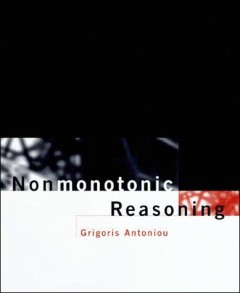
Nonmonotonic reasoning
Nonmonotonic reasoning provides formal methods that enable intelligent systems to operate adequately when faced with incomplete or changing information. In particular, it provides rigorous mechanisms for taking back conclusions that, in the presence of new information, turn out to be wrong and for deriving new, alternative conclusions instead. Nonmonotonic reasoning methods provide rigor simila…
- Edition
- -
- ISBN/ISSN
- 0585037035
- Collation
- 1 online resource (xii, 285 pages) :illustrations.
- Series Title
- -
- Call Number
- -
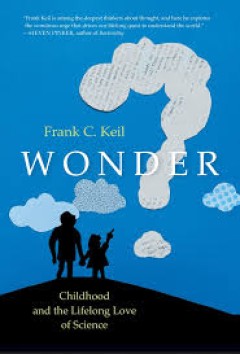
Wonder :childhood and the lifelong love of science
Description based upon print version of record."An explanation of where children's scientific intuitions come from and how they can be nurtured. Intended not just for scholars but science teachers and enthusiasts as well"--OCLC-licensed vendor bibliographic record.
- Edition
- -
- ISBN/ISSN
- 0262368455
- Collation
- 1 online resource (253 pages)
- Series Title
- -
- Call Number
- -
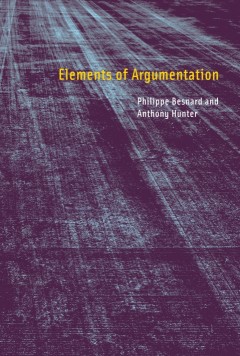
Elements of argumentation
Here the authors introduce techniques for formalizing deductive argumentation in artificial intelligence, emphasising emerging formalizations for practical argumentation. They discuss how arguments can be constructed, how key intrinsic and extrinsic factors can be identified, and how these analyses can be harnessed in the real world.OCLC-licensed vendor bibliographic record.
- Edition
- -
- ISBN/ISSN
- 9780262268400
- Collation
- 1 online resource (298 pages)
- Series Title
- -
- Call Number
- -
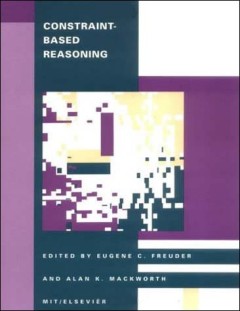
Constraint-Based Reasoning
"A Bradford book."Reprinted from Artificial intelligence, volume 58, numbers 1-3, 1992.Constraint-based reasoning is an important area of automated reasoning in artificial intelligence, with many applications. These include configuration and design problems, planning and scheduling, temporal and spatial reasoning, defeasible and causal reasoning, machine vision and language understanding, quali…
- Edition
- -
- ISBN/ISSN
- 9780262288446
- Collation
- 1 online resource (403 pages) :illustrations
- Series Title
- -
- Call Number
- -
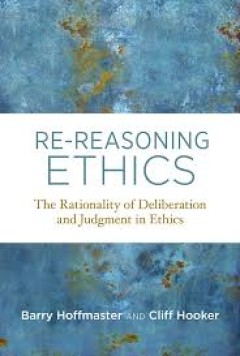
Re-reasoning ethics :the rationality of deliberation and judgment in ethics
How developing a more expansive, non-formal conception of reason produces richer ethical understandings of human situations, explored and illustrated with many real examples.OCLC-licensed vendor bibliographic record.
- Edition
- -
- ISBN/ISSN
- 9780262345637
- Collation
- 1 online resource (xvi, 296 pages).
- Series Title
- -
- Call Number
- -
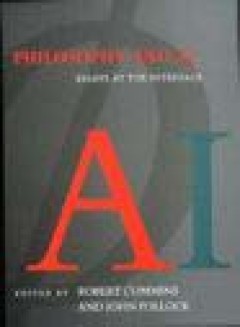
Philosophy and AI :essays at the interface
"A Bradford book."OCLC-licensed vendor bibliographic record.
- Edition
- -
- ISBN/ISSN
- 9780262315951
- Collation
- 1 online resource (xi, 304 pages) :illustrations
- Series Title
- -
- Call Number
- -

Space to reason :a spatial theory of human thought
"Many scholars believe that visual mental imagery plays a key role in reasoning. In Space to Reason, Markus Knauff argues against this view, proposing that visual images are not relevant for reasoning and can even impede the process. He also argues against the claim that human thinking is solely based on abstract symbols and is completely embedded in language. Knauff proposes a third way to thi…
- Edition
- -
- ISBN/ISSN
- 9780262313643
- Collation
- 1 online resource (290 pages)
- Series Title
- -
- Call Number
- -

How to talk to a science denier
"In How to Talk to a Science Denier, Lee McIntyre tells the story of his own adventures in talking face to face with science deniers and their victims-including a Flat Earth convention in Denver, coal miners in rural Pennsylvania, and fishermen in the Maldives-and what he learned from the experience"--OCLC-licensed vendor bibliographic record.
- Edition
- -
- ISBN/ISSN
- 026236672X
- Collation
- 1 online resource.
- Series Title
- -
- Call Number
- -

The art of abduction
"A defense of the rationality of adductive inference from the criticisms of Bayesian theorists"--OCLC-licensed vendor bibliographic record.
- Edition
- -
- ISBN/ISSN
- 0262369923
- Collation
- 1 online resource.
- Series Title
- -
- Call Number
- -

Reason and less :pursuing food, sex, and politics
"New theoretical model of human reasoning proposed by a leading researcher in the cognitive neurosciences. Explains why people are never fully rational in their decision-making"--OCLC-licensed vendor bibliographic record.
- Edition
- -
- ISBN/ISSN
- 0262369702
- Collation
- 1 online resource.
- Series Title
- -
- Call Number
- -
 Computer Science, Information & General Works
Computer Science, Information & General Works  Philosophy & Psychology
Philosophy & Psychology  Religion
Religion  Social Sciences
Social Sciences  Language
Language  Pure Science
Pure Science  Applied Sciences
Applied Sciences  Art & Recreation
Art & Recreation  Literature
Literature  History & Geography
History & Geography